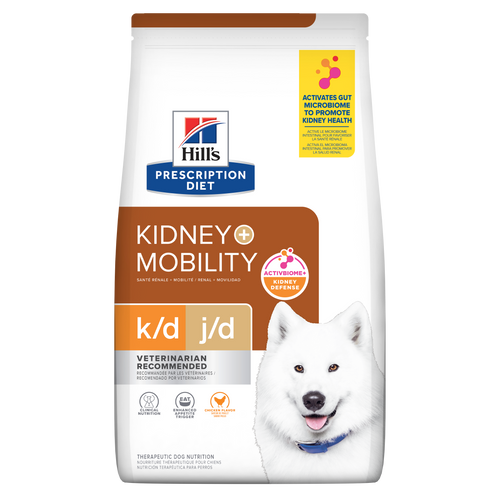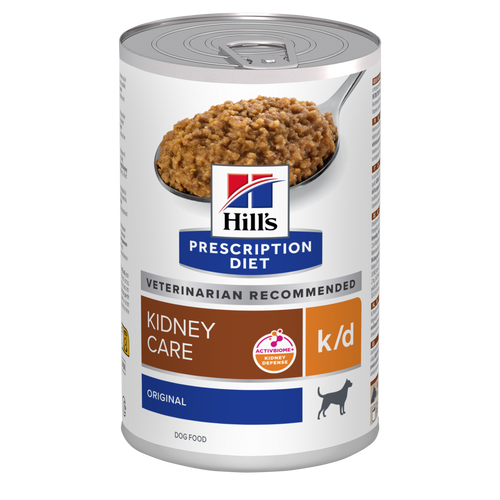
-
Find the right food for your petTake this quiz to see which food may be the best for your furry friend.Find the right food for your petTake this quiz to see which food may be the best for your furry friend.Health CategoryFeatured products
 Hill's Science Diet Adult Healthy Mobility Large Breed Chicken Meal, Barley & Brown Rice Recipe Dog Food
Hill's Science Diet Adult Healthy Mobility Large Breed Chicken Meal, Barley & Brown Rice Recipe Dog FoodAdvanced nutrition shown to support joint health and improve mobility
Shop Now Adult Light Large Breed Chicken Meal & Barley Recipe Dog Food
Adult Light Large Breed Chicken Meal & Barley Recipe Dog FoodFewer calories for less active large breed dogs
Shop Now Adult Large Breed Chicken & Barley Recipe Dog Food
Adult Large Breed Chicken & Barley Recipe Dog FoodSupports healthy joints, lean muscle, and beautiful coat for large breed dogs
Shop NowFeatured products Adult Oral Care Chicken & Brown Rice Recipe Cat Food
Adult Oral Care Chicken & Brown Rice Recipe Cat FoodClinically proven kibble technology to reduce plaque & tartar build-up
Shop Now Adult Perfect Digestion Chicken, Barley & Whole Oats Recipe Cat Food
Adult Perfect Digestion Chicken, Barley & Whole Oats Recipe Cat FoodHill's Science Diet's breakthrough nutrition supports ultimate digestive well-being & healthy microbiome
Shop Now Kitten Healthy Cuisine Tender Chicken & Rice Medley
Kitten Healthy Cuisine Tender Chicken & Rice MedleyDelicious tender chicken and rice in a mouthwatering sauce with precisely balanced nutrition to support 5 essential building blocks for lifelong health
Shop Now -
DogCat
- Cat Tips & Articles
-
Health Category
- Weight
- Skin & Food Sensitivities
- Urinary
- Digestive
- Kidney
- Dental
- Serious Illness
-
Life Stage
- Kitten Nutrition
- Adult Nutrition
Featured articles Cat vs. Dog: Which Is the Best Pet for Me?
Cat vs. Dog: Which Is the Best Pet for Me?Learn about important differences between dogs and cats, such as cost & space considerations. These factors can help you decide which pet is best for you.
Read More Adopting a Pet: What You Need to Know
Adopting a Pet: What You Need to KnowLearn the basics of adopting a pet, including where to begin and common questions you should ask yourself when deciding which kind of pet is best for you.
Read More Fun Ideas for Kids and Pets This Summer
Fun Ideas for Kids and Pets This SummerOutdoor summer activities with your dog or cat can be fun for kids, too. Learn how they also teach kids responsibility & creates a bond with their pet.
Read More -
Kidney health for dogs
Kidney health for dogs
What is kidney failure in dogs?
Kidney failure is a condition that damages your dog’s kidneys, leading to kidney or renal disease. The most common form is known as Chronic Kidney Disease (CKD), which affects about 1 in every 10 dogs.1
Your dog’s kidneys are vital to removing waste substances from the bloodstream and maintaining the balance of fluid and minerals within the body. But if the kidneys can’t do their job, the result could be life-threatening for your dog.
What causes kidney disease in dogs?
There are two main categories of kidney failure in dogs: acute and chronic. Signs of acute renal failure usually manifest over a week or month’s time, while chronic renal failure is present for a longer period. Common causes of kidney failure include:




Early detection of kidney failure in your dog
Signs of serious illness only appear after 75% of kidney function is already lost, so the sooner kidney disease is diagnosed, the more time there is to address the underlying cause or slow the disease’s progression. CKD is progressive and irreversible, but your veterinarian can help provide long-term care and show you how to track signs in older dogs.
What are the signs of kidney disease in dogs?
The signs of early-stage kidney disease are not visible. On diagnosis, CKD has already been present for some time but may be managed with the help of vet-approved dog food for kidney disease. Signs of late-stage kidney disease tend to be similar but are far more noticeable to pet parents.



















Nutrition for dogs with kidney disease
If your dog has kidney problems, the right nutrition may be able to make a positive impact on their lives and potentially even lengthen their lifespan. Specially formulated nutrition for dogs with kidney disease can be beneficial by having less protein and phosphorous than other pet foods. Phosphorus restriction can lessen the severity of the symptoms and progression of kidney damage, while controlled, high-quality proteins can help restore normal acid-base levels.
What about nutritional yeast for dogs with kidney disease?
While it has gained some popularity online, yeast is relatively high in phosphorus, which could be a concern for dogs with CKD. Similarly, many websites now propose creating a raw diet for dogs with kidney disease but fail to mention the range of factors to consider, such as contamination risks, providing the right balance of nutrients, and the overall cost. When looking into nutritional options for dogs with kidney disease, it’s always best to get a specific recommendation from your veterinarian.
Nutrition for dogs with kidney disease
If your dog has kidney problems, the right nutrition may be able to make a positive impact on their lives and potentially even lengthen their lifespan. Specially formulated nutrition for dogs with kidney disease can be beneficial by having less protein and phosphorous than other pet foods. Phosphorus restriction can lessen the severity of the symptoms and progression of kidney damage, while controlled, high-quality proteins can help restore normal acid-base levels.
What about nutritional yeast for dogs with kidney disease?
While it has gained some popularity online, yeast is relatively high in phosphorus, which could be a concern for dogs with CKD. Similarly, many websites now propose creating a raw diet for dogs with kidney disease but fail to mention the range of factors to consider, such as contamination risks, providing the right balance of nutrients, and the overall cost. When looking into nutritional options for dogs with kidney disease, it’s always best to get a specific recommendation from your veterinarian.
Recommended products for dogs with kidney issues

Formulated to help support your dog's bladder health

Delicious clinical nutrition to help protect vital kidney function and support mobility in dogs

Formulated to help support your dog's bladder health

Delicious clinically proven nutrition that helps protect vital kidney function
Related articles

Learn to recognize the signs of congestive heart failure in dogs so you can give your dog the best chance of a longer, healthier life.

Learn whether dogs can actually get warts and their similarities to other skin growths, as well as whether they can be harmful for your dog.

Cancer affects one out of three dogs in a variety of ways. Learn about the types of dog cancers, warning signs to look for, and treatments that can help.

Hookworms in dogs are intestinal parasites that get their name from the hook-like mouthparts they use to attach to the intestinal wall. Learn more here.
References: 1Lulich JP, Osborne CA, O’Brien TD, Polzin DJ. Feline renal failure: questions, answers, questions. Compend Contin Educ Pract Vet. 1992;14(2):127–153. Brown SA. Renal dysfunction in small animals. The Merck Veterinary Manual website.

